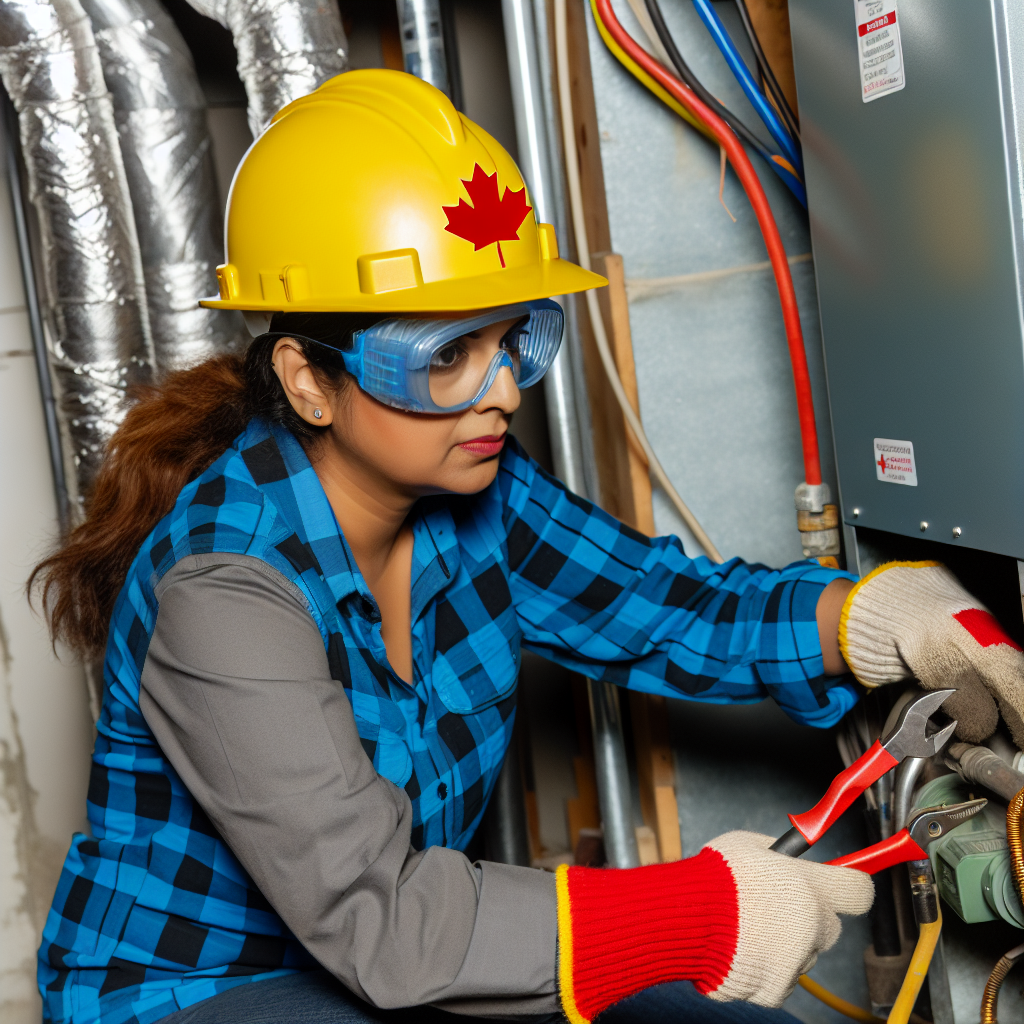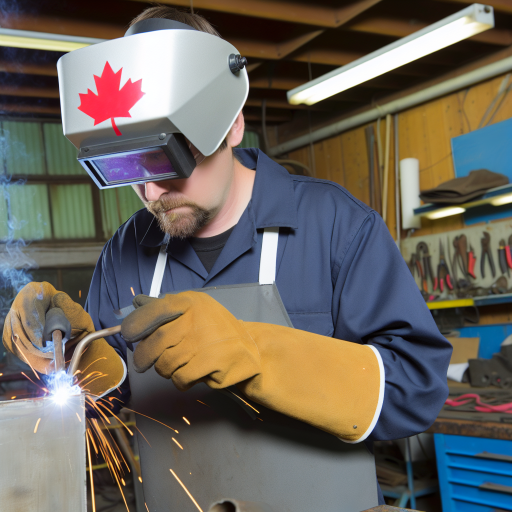Understanding the Basics of HVAC Systems
Definition and Purpose
HVAC stands for heating, ventilation, and air conditioning.
It maintains indoor comfort through temperature regulation.
Furthermore, it ensures quality air circulation within buildings.
Components of HVAC Systems
Each HVAC system has key components that work together.
These include the furnace, air conditioner, and ductwork.
Moreover, thermostats and filters play essential roles.
Types of HVAC Systems
Several types of HVAC systems are available for different needs.
Central heating and cooling systems are common in homes.
On the other hand, ductless mini-split systems offer flexibility.
Additionally, heat pumps provide efficient year-round climate control.
Importance of Maintenance
Regular maintenance enhances the efficiency of HVAC systems.
This practice extends the lifespan of the equipment significantly.
Moreover, it prevents unexpected breakdowns and costly repairs.
Importance of Regular Maintenance Checks
Regular maintenance checks are essential for HVAC systems.
These checks improve system efficiency and performance.
They also extend the lifespan of the equipment.
Neglecting maintenance can lead to serious issues.
In fact, many breakdowns are preventable with regular care.
Enhancing Efficiency
Regular checks help keep your HVAC system running smoothly.
An efficient system lowers energy bills significantly.
Furthermore, it reduces wear and tear on the components.
This ultimately saves on costly repairs.
Improving Indoor Air Quality
Maintenance includes cleaning and replacing filters.
Clean filters ensure better air quality in your home.
Consequently, this reduces allergens and pollutants indoors.
Unlock Your Career Potential
Visualize a clear path to success with our tailored Career Consulting service. Personalized insights in just 1-3 days.
Get StartedImproved air quality promotes better health for all occupants.
Identifying Problems Early
Regular inspections can catch issues before they worsen.
For instance, a small leak can escalate into a major problem.
Addressing minor issues promptly saves time and money.
It also prevents potential damage to your home.
Maintaining Warranty Compliance
Many HVAC manufacturers require regular maintenance for warranties.
Failing to comply can void your warranty coverage.
Thus, consistent checks protect your investment.
In addition, they ensure you receive any necessary repairs or replacements.
Common HVAC Issues and Their Solutions
Insufficient Cooling or Heating
This issue often frustrates homeowners.
First, check your thermostat settings.
Ensure the correct temperature is set.
Next, inspect your air filters.
Clogged filters restrict airflow and reduce efficiency.
Change your filters every one to three months.
Additionally, check for blocked vents.
Clear any obstructions that might hinder airflow.
If the problem persists, consider calling a professional.
Strange Noises from the HVAC Unit
Unusual sounds can be a sign of trouble.
First, identify the type of noise you hear.
For instance, rattling noises often indicate loose components.
Banging sounds may suggest a malfunctioning blower motor.
While whining noises could be related to the fan or motor.
Addressing these issues quickly prevents further damage.
If you cannot diagnose the noise, contact a technician.
Unpleasant Odors Emitting from Vents
Bad smells can indicate underlying issues.
Mold or mildew growth may cause musty odors.
Check your ductwork and vents for signs of moisture.
On the other hand, burning smells may signal electrical problems.
In this case, turn off the system immediately.
Then, reach out to a qualified HVAC technician.
Frequent Cycling of the HVAC System
Your HVAC system should cycle efficiently.
Frequent on-and-off cycling can waste energy.
This issue often results from a dirty air filter.
Regularly maintain your filters to promote efficiency.
Additionally, check the thermostat placement.
It should not be near heat sources or drafts.
Lastly, consider the size of your HVAC unit.
An improperly sized unit can lead to short cycling.
High Energy Bills
Unexpected spikes in your energy bills can raise concerns.
Begin by evaluating your HVAC system’s efficiency.
Regular maintenance ensures optimal performance.
Furthermore, consider upgrading to a programmable thermostat.
This allows for efficient temperature control.
You might also consider a home energy audit.
Such audits identify areas for improvement.
Inconsistent Temperatures Across Rooms
This common problem can disrupt comfort levels.
Start by checking your vents for blockages.
Furthermore, ensure proper insulation in your home.
Inadequate insulation can lead to temperature discrepancies.
Consider installing zoning systems for better control.
These systems help manage temperatures in separate areas.
Consult with an HVAC professional for custom solutions.
Find Out More: Understanding the Daily Tasks of an HVAC Technician
Seasonal HVAC Maintenance Tips
Spring Maintenance Tasks
Start your HVAC spring maintenance with a thorough inspection.
Check filters and replace them if they appear dirty.
Inspect the outdoor unit for debris and clean it if necessary.
Ensure the condensate drain is clear to prevent water damage.
Consider scheduling a professional tune-up for optimal performance.
Summer Preparation Strategies
Test your air conditioning system’s cooling efficiency.
Adjust the thermostat settings for maximum comfort.
Inspect ducts for leaks and seal them to improve efficiency.
Use ceiling fans to enhance air circulation throughout your home.
Ensure your attic is well-ventilated to reduce heat buildup.
Autumn Readiness Checks
As fall approaches, inspect your heating system.
Replace or clean filters to keep air flowing efficiently.
Check the thermostat to ensure proper operation.
Look for any signs of wear or damage in the system.
Schedule a professional checkup before the heating season starts.
Winter System Care
In winter, keep the heating system in peak condition.
Monitor your thermostat settings to ensure consistent warmth.
Open vents and registers to allow even heating throughout your home.
Consider using a humidifier to combat dry winter air.
Regularly check and replace filters during cold months.
Uncover the Details: What It’s Really Like to Be an Electrician in Canada: Day in the Life
How to Change HVAC Filters Efficiently
Understanding the Importance of Filters
HVAC filters play a vital role in system performance.
They trap dust, pollen, and other particles.
Regularly changing filters improves air quality.
Clean filters also enhance system efficiency.
Gathering Necessary Tools
Before you start, gather essential tools.
You will need a vacuum cleaner with a brush attachment.
Furthermore, have a new filter ready for installation.
A pair of gloves can keep your hands clean.
Identifying the Right Filter Type
Check your HVAC system specifications for filter size.
Filters come in various MERV ratings.
Choose the right rating based on your needs.
Higher ratings capture smaller particles effectively.
Steps to Change the Filter
Firstly, turn off your HVAC system to ensure safety.
Next, locate the filter compartment in the unit.
Carefully remove the old filter from its slot.
Clean the compartment using your vacuum cleaner.
Then, insert the new filter with the correct airflow direction.
Finally, close the compartment securely.
Setting a Reminder for Regular Changes
It’s essential to have a regular filter change schedule.
Mark your calendar for monthly reminders.
Consider seasonal changes to adjust frequencies.
Furthermore, monitor your system’s performance for signs of blockage.
Gain More Insights: Why Skilled Labor Jobs in Canada Are the Backbone of Economic Recovery

The Role of Professional Inspections in HVAC Care
Importance of Regular Inspections
Regular inspections play a vital role in maintaining HVAC systems.
They help identify potential issues before they escalate.
Moreover, inspections enhance the system’s performance and efficiency.
Consequently, this can lead to lower energy bills for homeowners.
Understanding What Professionals Check
HVAC professionals examine various components of the system.
They check filters to ensure they are clean and functioning.
Additionally, they inspect ductwork for any leaks or blockages.
This process involves evaluating critical elements such as refrigerant levels.
Furthermore, they assess the electrical connections for safety and reliability.
Finding Qualified HVAC Inspectors
Finding a qualified HVAC inspector is crucial for system maintenance.
Start by asking for recommendations from friends or family.
Online reviews can provide insights into different companies as well.
Be sure to check for licenses and certifications in your area.
This ensures the inspector possesses the necessary knowledge and skills.
Scheduling Your Inspections
Scheduling inspections regularly is essential for system longevity.
Consider scheduling them biannually, before summer and winter seasons.
This proactive approach keeps the system running efficiently.
Additionally, it allows you to catch any issues during off-peak seasons.
Ultimately, timely inspections help avoid costly emergency repairs.
Find Out More: The Rise of Electrical Work in Canada: Opportunities and Growth
Tips for Enhancing HVAC Energy Efficiency
Regular Maintenance
Regular maintenance is crucial for maximizing HVAC efficiency.
Schedule biannual inspections with a certified technician.
This proactive approach identifies potential issues early.
Regularly replace air filters to maintain optimal airflow.
Clean the coils every year to improve heat exchange.
Optimize Thermostat Settings
Smart thermostats enhance comfort and efficiency.
Program your thermostat to adjust temperatures based on your schedule.
Utilize energy-saving modes during peak hours.
Consider raising the temperature a few degrees in summer.
Lower the temperature slightly in winter for additional savings.
Improve Insulation
Good insulation reduces the workload on your HVAC system.
Seal gaps around windows and doors to prevent leaks.
Consider adding insulation to your attic or crawl space.
This investment pays off in energy cost savings.
Evaluate your home for areas needing better insulation.
Use Ceiling Fans
Ceiling fans help distribute air evenly throughout your home.
Run fans counter-clockwise in summer for a cooling effect.
In the winter, reverse the direction to circulate warm air.
This simple adjustment enhances comfort and reduces energy use.
Keep Outdoor Units Clear
Ensure outdoor HVAC units are free from debris and obstructions.
Regularly trim bushes or foliage surrounding the unit.
Clear away leaves and dirt to promote efficient airflow.
A clean unit works more efficiently and lasts longer.
Invest in Energy-Efficient Equipment
Consider upgrading to ENERGY STAR certified equipment.
New HVAC systems offer better efficiency ratings.
Research available tax incentives for energy-efficient upgrades.
This decision provides long-term savings on energy bills.
Always consult with professionals for suitable options.
Signs Your HVAC System Needs Immediate Attention
Unusual Noises
Listen for any strange noises from your HVAC unit.
Rattling or clanging sounds can indicate loose parts.
Squealing noises might suggest a worn-out belt or motor issue.
Buzzing sounds often point to electrical problems that require immediate inspection.
Inconsistent Temperatures
Notice if some rooms feel warmer or cooler than others.
This inconsistency can signal blocked ducts or failing components.
Adjustments in temperature settings should not cause such issues.
Increased Energy Bills
Review your energy bills for any unexpected spikes.
Higher costs often indicate an inefficient HVAC system.
Overworking to maintain temperature can lead to excessive energy use.
Air Quality Issues
Pay attention to the air quality within your home.
Musty or stale odors may arise from the HVAC system itself.
Dust and allergens circulating in your home can signify filter problems.
Frequent Cycling
Monitor how often your HVAC system turns on and off.
Short cycling can cause wear and tear on the unit.
This issue often points to a malfunctioning thermostat or refrigerant problems.
Humidity Problems
Assess the humidity levels in your home.
Excessive moisture can indicate an issue with your system’s dehumidification process.
Conversely, too little humidity may suggest that your system is not functioning properly.
Visible Leaks or Moisture
Check for any visible leaks around your HVAC unit.
Water pooling or visible mold can pose significant health risks.
Addressing leaks quickly can prevent further damage to your property.
Additional Resources
Moisture Control Guidance for Building Design, Construction and …
So I’m new at HVAC, I just got my EPA 608 2 certificate. Would that …




